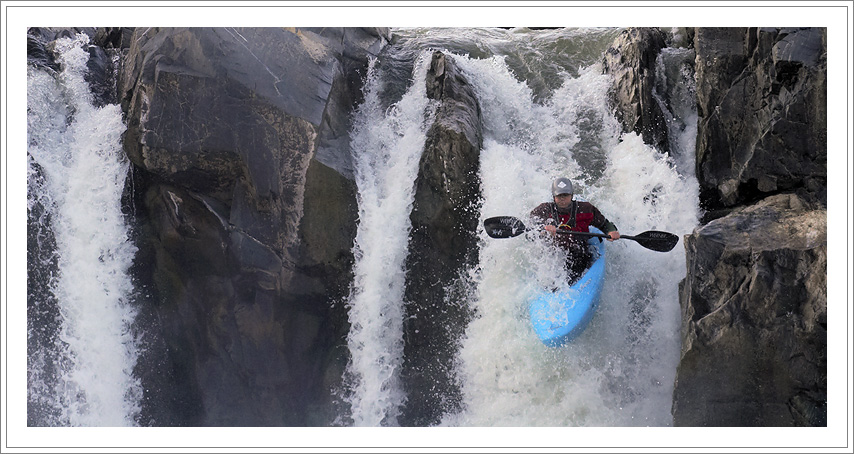Love the outdoors? Time to speak up


For the tens of millions of us in the U.S. who like to paddle, hike, climb, mountain bike and ski, clean land and water are vital. It’s not enough to have a kayak and a path to the river if the water’s polluted. Ditto for a landfill next to a park or a littered forest.
Outdoor Alliance to the rescue. The alliance helps fight for access and funding for our public lands and waters and gives a voice in Washington to members of its six organizations: The Access Fund (which represents climbers), American Canoe Association, American Hiking Society, American Whitewater, International Mountain Bicycling Association and Winter Wildlands Alliance.
I recently talked to attorney Adam Cramer, Outdoor Alliance’s policy architect here in Washington.
What’s a policy architect? It sounds like something you’d hear only in D.C.
I invented it. The Outdoor Alliance isn’t like a 501(c)(3), so I couldn’t be an executive director, and I function as more than just counsel for them. I assess the political landscape, help them figure out what their priorities are and help design and implement policy for the coalition. It’s a lot of cerebral work.
What are the biggest obstacles for preserving our recreation areas?
The conventional answer is climate change—figuring out if we can formulate some type of response to it. But another threat that’s not talked about too much is that the political constituency for parks and public lands is kind of fractured, and the future of it is hazy.
What do you mean by that?
The idea of a landscape of open space is profoundly important in the American psyche—you see it in our art and our literature. Some groups and people have a very intimate relationship to it, but it’s difficult to say everybody does, like they did 100 years ago when we were settling in the West. In the 21st century, you don’t have to rely on the land in a direct way to exist—you get your fuel through your gas line, you go to the grocery store for your food, so you’re not paying attention to natural systems like farmers or miners did. The farther you get from that natural world, the less you pay attention to it. So most people have an abstract connection, which creates an incomplete constituency.
You’re saying more of us need to get out there and speak up for the environment?
That’s right. The more people who are engaged with the natural world, the more the resulting policy will be in line with what’s best for everyone. There will always be people showing up at hearings; the question is who do they represent. If you just have this tired dichotomy of preservationists and developers, you’re playing ping-pong, and it’s hard to get a three-dimensional approach.
What’s an example of this?
There was a hydro re-licensing case in Western Maryland last year. We had the hydro company, the town, the angling community, the local outfitters and the local boaters. We had all the people with their different interests, and by taking the time and listening, we worked out a [dam] releasing schedule for the power company. The state allows the hydro company to use the water, but they also have to take into account the people who live there and use it. It was only through this back and forth that there was an understanding and a compromise reached that was good for everyone. It was wonderful.
So even a group of kayakers can be powerful?
The world is ruled by the people who show up. In our system of government, no one is really in charge--it’s split up in a million little pieces, and it’s the people who pick up the pieces who have a vote. If you don’t, you’re letting go of something really important. If you’re a kayaker or climber, you think, “Who cares?” But if you work with these other groups and are able to form consensus, there’s this currency. You have different groups looking at the world in different ways, but you all endorse the same idea, and that’s a very powerful thing. When you present this to a policy-maker, they understand the weight of it.
It seems like there is so much to save. Isn’t it overwhelming?
Rather than thinking about saving the world—that’s an older paradigm, coming out of the ‘60s and ‘70s—pick a place or a couple places that are important to you. Places where you like to hike or bike. To the extent where you can be engaged in these places on a local level, that’s a good thing. It’s the local groups that pay attention to things like budget cuts and trash removal. Running around trying to save everything can be exhausting.
This post was originally published on Smartplanet.com